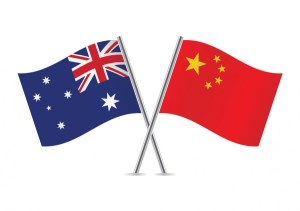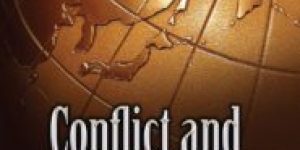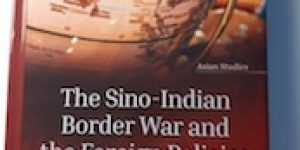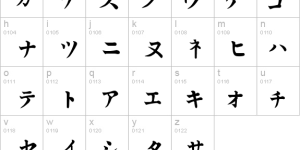My Story ~ 17. A Unique Personal Statement
No comments yet “After many years, when thinking back to the interview at the University of Melbourne Law School, I still feel that it was the peak of my life.”
“After many years, when thinking back to the interview at the University of Melbourne Law School, I still feel that it was the peak of my life.”
Before choosing to study law, I was rather hesitant and struggled with the decision – the voice telling me to study medicine had been part of my life as I grew up. My father died of illness when I was three and a half years old, so I grew up with my mother and grandmother. There was no father figure when we, four brothers and sisters, were growing up, which resulted in that we not only had living problems, but also lacked of spiritual support. Studying medicine was the inner thought and long-time desire of our father and was also an important support on my road of life. Once I thought that I would never let other children suffer the pain of losing a father. It also explains why a lot of my families choose to study medicine; the motivation is simply related to my father. In addition, I believe you have read my resume, which shows that I was involved in foreign trade and have worked in that field for nearly 10 years. Regardless of life experience, after all it has given me it is no wonder that you may ask why I chose law. I have already got my answer in my heart.
Personally, perhaps the law is more suitable for me than medicine, because I know that it is my inner voice speaking. Medical science can help a lot of people, and it is also the motivation formed by my family background; while the law is quite different, it is my personal expectation, and the priority of my interests. People should respect the preference of their hearts, because that will provide permanent encouragement in the future.
The study of law and foreign trade can complement each other to some extent. With the guarantee of systems and institutions, trading can be more rewarding. By studying law, I also would like to help the future exchange between China and Australia, yes, the exchange between two countries — the international association.
At this point of the interview at the Law School of University of Melbourne, the teacher suddenly laughed heartily, and said that I spoke from the heart, with great feeling and this was the most unique statement that he had ever heard. I felt embarrassed and scratched my head and smiled kindly. Perhaps the teacher wanted to see my “caring about the world” face. Soon after the interview, I was told that I was admitted to the Law School.
I once believed that no one can stand alone, everyone is looking for a warm embrace, and hopes that that embrace can make oneself safer, stronger and even perfect. From my first time here in 1991 to getting a permanent residency card in 1997, and to returning home victoriously in 2005, I was successful in Australia — Australia has a total of more than 600 lawyers, only two of them come from China and only one has worked as a special adviser in the top law office of Melbourne, and I am the one. Although I have lived the mainstream of society, I still felt uneasy and still continued to look for the things that can satisfy my heart. Want I am looking for, is an ethnic community.
I always explicitly described my position as “an overseas Chinese”. I came to this land of Australia across the sea and wanted to learn the language and understand the customs here. I actively communicated with others and tried to integrate into the community, and whatever happened, I never felt lost. Maybe my accent has improved, my habits have changed, but I always know that I am Chinese, just like my name “Li Ming” (meaning the dawn). My father gave me this name because I was born in the morning, and I have used it up until now and never changed it. Someone told me that I should use an English name when I live in a western country, this would be more convenient for making friends and working as a lawyer, or at least assist others to remember me. But I always say that it is not necessary. Maybe my name is not easy to remember, but if someone really wants to know me, he will also be able to remember my name. So it is not necessary to change it to a name that my father does not know. It is a memorial to and also a demonstration of respect for my father. From the beginning, I set a principle for myself that my name will never be changed and cannot be changed, because Chinese people should use their Chinese names.
Since Australia enthusiastically opened her arms to me, I will proudly open our Chinese arms, and bring to Australia the charming and profound language, broad and rich culture, my tenderness nourished by the southern Chinese culture mixed with a classical flavor (I’m a native of Putian, Fujian) .
At first, there inevitably was some exclusion and misunderstanding. There is always a sense of superiority and conflict in Caucasian society toward Asian faces. My colleagues often said that their lives were dominated by work without any interchange with others. Yes, communication at the beginning was not easy. But once they began to communicate with me, they discovered that it was quite easy to talk to a Chinese person and I was actually treated as an equal. Such an understanding should be built on the basis of respect. How can Chinese people live in other countries and in a multi-cultural environment? We must initially earn respect and understanding. My ambition may be greater, I not only want to survive, but also to live better and to win glory for my motherland. In the ebb tide, I am like a molecule which absorbs nutrients and becomes stronger until condensing into a perfect form. When this occurs, I can show myself in a better light. Thousands of molecules are like a majestic wave, which drives the innovation of Chinese culture and the innovation of the inner world of a generation of Chinese people; this is why we need the ethnic community.
Our ethnic community must have a distinct symbol in the color of the Five-Starred Red Flag—China’s color. We live and multiply in Australia, but it is not true that all our descendants are Australians. It is not the basis of my concepts, culturally; it is also not in line with the Australians’ concept of an ethnic community. An ethnic community should include and fuse the differences, and show toughness and independence against assimilation. This is the style and verve of the community.
From the University of Melbourne to the present, and from my knowledge about the law, to my success in the Australian legal profession, the statement which I made at my interview has always been clearly engraved in my mind, and I still feel that it was the peak of my life. As one of the first state-financed students studying abroad, I know my responsibilities. Just like Xiang Yu having no face to see his fellow villagers, if I accomplished nothing, I also did not have face to return home. I have stumbled along the way, but my statement which was flattered by the teacher who interviewed me guided me like an ever-burning light before me. I am a lawyer, so I will do my best in the field of law. Australia’s legal system has a lot of advantages that China can use for reference, but China’s humanity relationship also makes the society prosperous. If Australia’s legal system and China’s human relationships can complement each other, it will be a good thing.
After many years, when thinking back to the interview at Law School of University of Melbourne, I still felt that it was the best of me through the years.
As I grow older, I agree more and more with a statement: “the real changes are changes from within which lead to understanding, compassion, justice and love.” Only by experiencing these can you come to terms with the heterogeneous environment, and make peace with the foreign land without self-conceit, hesitation and humbleness, for both individuals and countries.
You May Also Like
Comments
Leave a Reply









